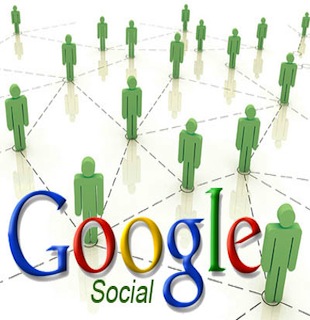As we’ve written about before, Google and their new CEO Larry Page are undergoing a significant reorganization that places engineers in power of individual departments and leaves much of the “old” management team to now fight for a seat at the table.
A Google spokesman confirmed last week  that the company was undergoing a significant change in management structure.The spokesman said the restructuring is aimed at “streamlining” Google management, putting one person in charge of each of Google’s “functional groups.” These groups are generally based around product lines, such as search or the Android platform.
that the company was undergoing a significant change in management structure.The spokesman said the restructuring is aimed at “streamlining” Google management, putting one person in charge of each of Google’s “functional groups.” These groups are generally based around product lines, such as search or the Android platform.
Citing an unnamed source, the Los Angeles Times reported that the management shakeup included several key promotions with each person being autonomous and reporting directly to Larry Page.
Andy Rubin was named senior vice president of mobile
Vic Gundotra, senior vice president of social
Sundar Pichai, senior vice president of Chrome
Alan Eustace, senior vice president of search
Susan Wojcicki, senior vice president of ads
Salar Kamangar, senior vice president of YouTube and video
Where is Marissa Mayer?
One name left off of the list above was the darling of every “women in tech” article of the last 10 years: Marissa Mayer.
Google IS Marissa Mayer. As vice president, search and user experience (and a 10-year veteran of Google), she’s helped make the company the world’s number-one search engine, with revenues of nearly $30 billion last year. Almost nothing gets out the door without her approval, even non-search innovations like Gmail and Google Earth.
Google’s last CEO Eric Schmidt said in 2009, “She built the team that designs the products that we all use every day.”
Page has made it clear that he wants engineers in control. This was the perfect storm for Marissa to take on even more responsibility. She is young, tons of executive experience, and an engineer at heart. She has said that she stays up all night coding for fun! And yet, she was left out and essentially demoted last week.
But why just leave? And where will Google’s 19th employee go?
First of all, she’s wealthy. That “19th employee” bit is code, within Silicon Valley, for “rich”; the earlier an employee joins a startup which succeeds, the more money they make. With Google, which is still worth $100 billion after its stock tumble, that translates into hundreds of millions of dollars for Mayer, who owns a penthouse apartment in San Francisco’s Four Seasons, another home in outrageously pricey Palo Alto, and a large art collection. She once paid $60,000 for a lunch with Oscar de la Renta, and she owns part of I Dream of Cake, a “cake gallery” in North Beach, as a way of indulging her pastry fetish.
So she’s already made her money. And her career? Mayer, who joined Google in 1999 straight out of Stanford’s graduate computer-science department, rose quickly through the ranks. A stint dating Google cofounder Larry Page surely didn’t hurt her chances, but she won promotions first to director and then to vice president mostly by dint of a schedule of robotic overwork and an obsession with keeping the search engine’s homepage sparse and free of clutter. Her looks — blonde, Midwestern, unusually attractive for Silicon Valley — helped her win magazine covers. And she won fans among Google’s tight-knit top management, even as underlings groaned about her scattered, arbitrary management style.
It’s time… for Facebook
In the end, it’s probably a good time to leave. Recently married, beyond wealthy, and with a feeling of betrayal from the company she helped build. She will be heavily courted by venture capitalists and could probably raise a round of funding quicker than anyone else in Silicon Valley.
I’d put my money on her reuniting with Sheryl Sandberg at Facebook. Sandberg left Google and as COO has helped build Facebook into the one company that COULD truly challenge Google for web dominance. With Mayer on board, there is zero doubt in my mind that they would turn Facebook into the indexed, searchable, backbone of the internet.
Will Mayer jump ship? Nobody knows for sure but her, but I highly doubt this is the last we hear from her in the next 6 months.
Tags: executive, FACEBOOK, featured, GOOGLE, management











